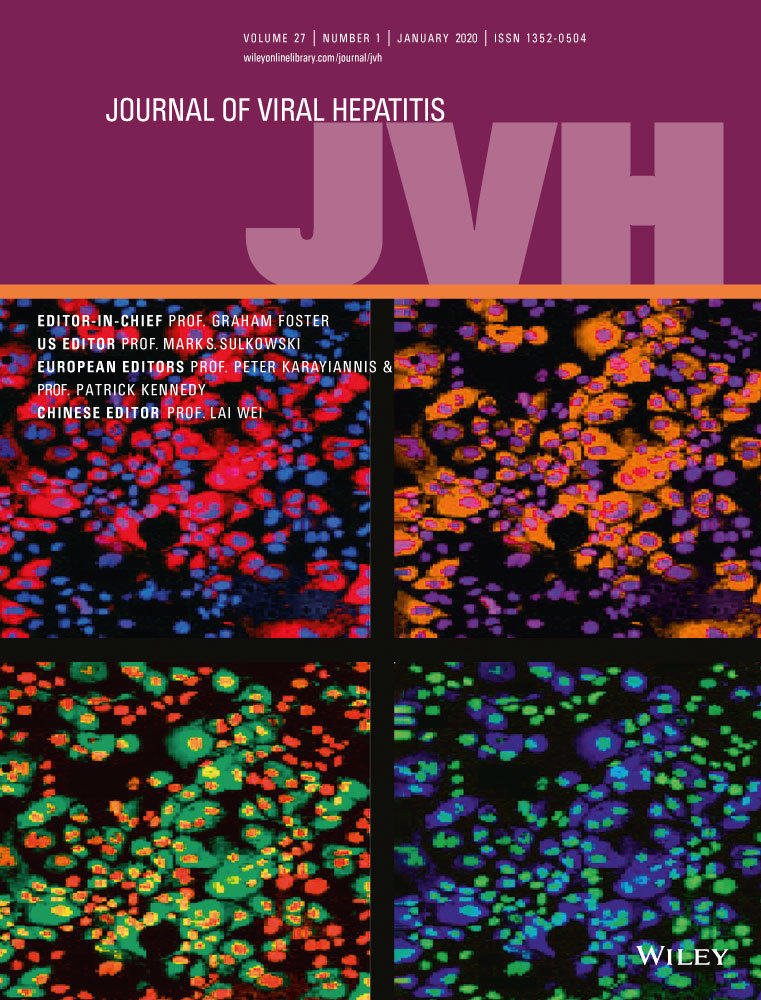p38 mitogen-activated protein kinase impairment of innate immune cells is a characteristic feature of HBeAg-negative chronic hepatitis B
Abstract
The mitogen-activated protein kinase p38 (MAPK) is implicated in the induction of immune responses by regulating the differentiation of T lymphocytes and production of cytokines. Our aim was to investigate p38MAPK phosphorylation in different stages of the natural history of hepatitis B virus (HBV) infection. Peripheral blood mononuclear cells (PBMCs) were isolated by Ficoll-Hypaque density-based centrifugation from 10 patients with HBeAg-negative chronic hepatitis B [HBeAg(−) CHB;HBV-DNA>2000IU/mL], eight patients with HBeAg-negative chronic HBV infection [HBeAg(−) CI;undetectable HBV-DNA] and 8 healthy controls (HCs). p38MAPK phosphorylation was assessed by phospho-specific flow cytometry in PBMCs and cell subsets (CD3+,CD3−,CD56+,CD56−) after stimulation with cytokines (IL-12+IL-2 and IL-12+IL-18) or nonspecific stimuli [arsenite, phorbol 12-myristate 13-acetate (PMA) and ionomycin] at 0,30,60,120 and 240 minutes using p38 phospho-specific conjugated antibodies. ΙFN-γ was determined by ELISA in PBMCs culture supernatants after stimulation with rhIL-2, rhIL-12 and rhIL-18, with and without pre-treatment with the p38 MAPK inhibitor, SB203580. HBeAg(−) CI patients showed the highest expression of phosphor-p38 MAPK in total PBMCs and subpopulations compared to HBeAg(−) CHB and HCs. A striking impairment in p38 phosphorylation was noted in CD56+ cells and in especially in NK cells (CD3-CD56+). SB203580-induced inhibition of p38MAPK phosphorylation was associated with suppression of IFN-γ production in all groups. The universal lack of p38 MAPK activation in CD56+ and in particular in NK cells from HBeAg(−) CHB patients during viremia suggests a potential cell-dependent implication of this pathway in the natural history of HBV infection.
CONFLICT OF INTEREST
None




